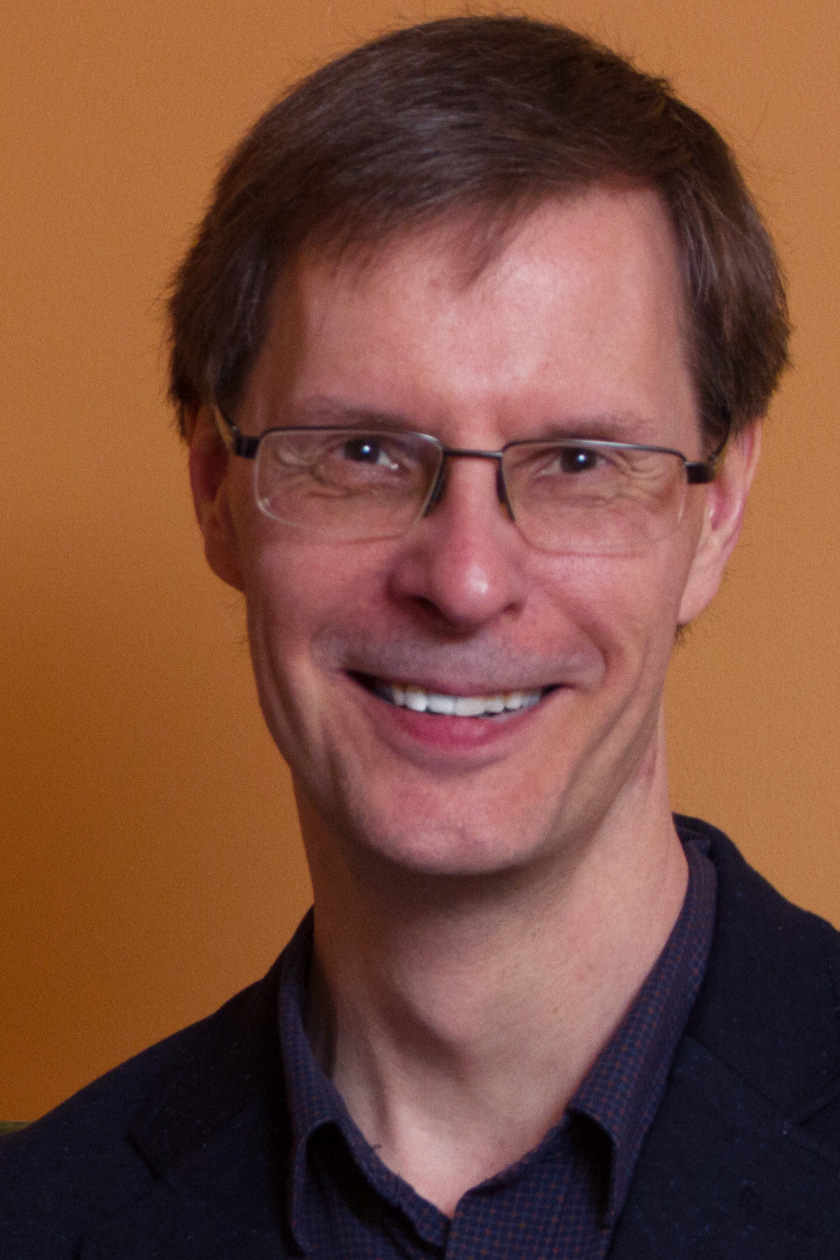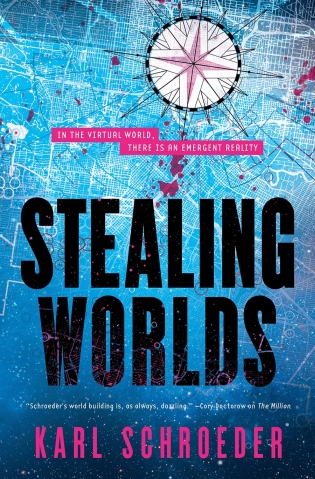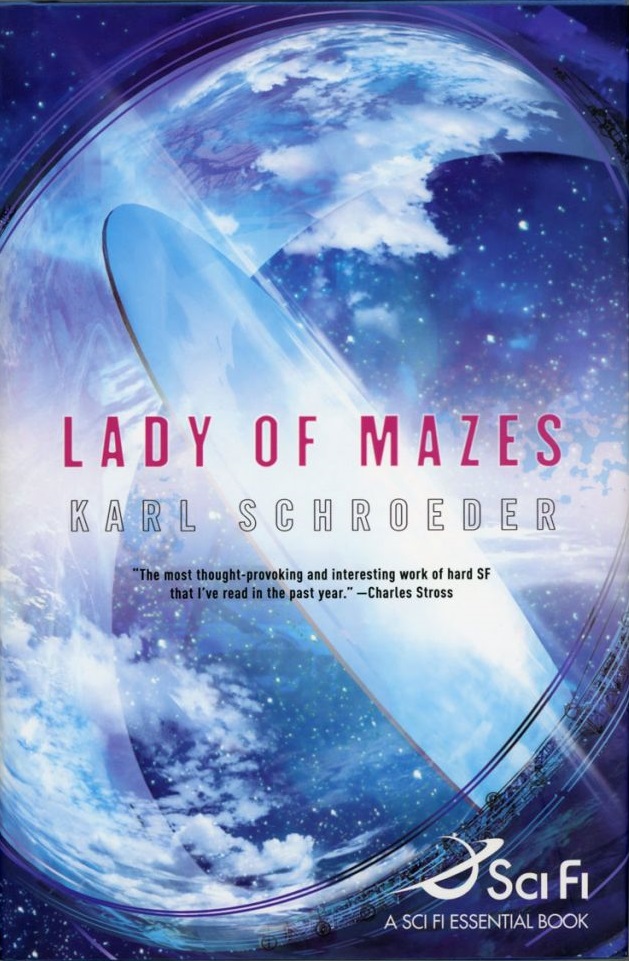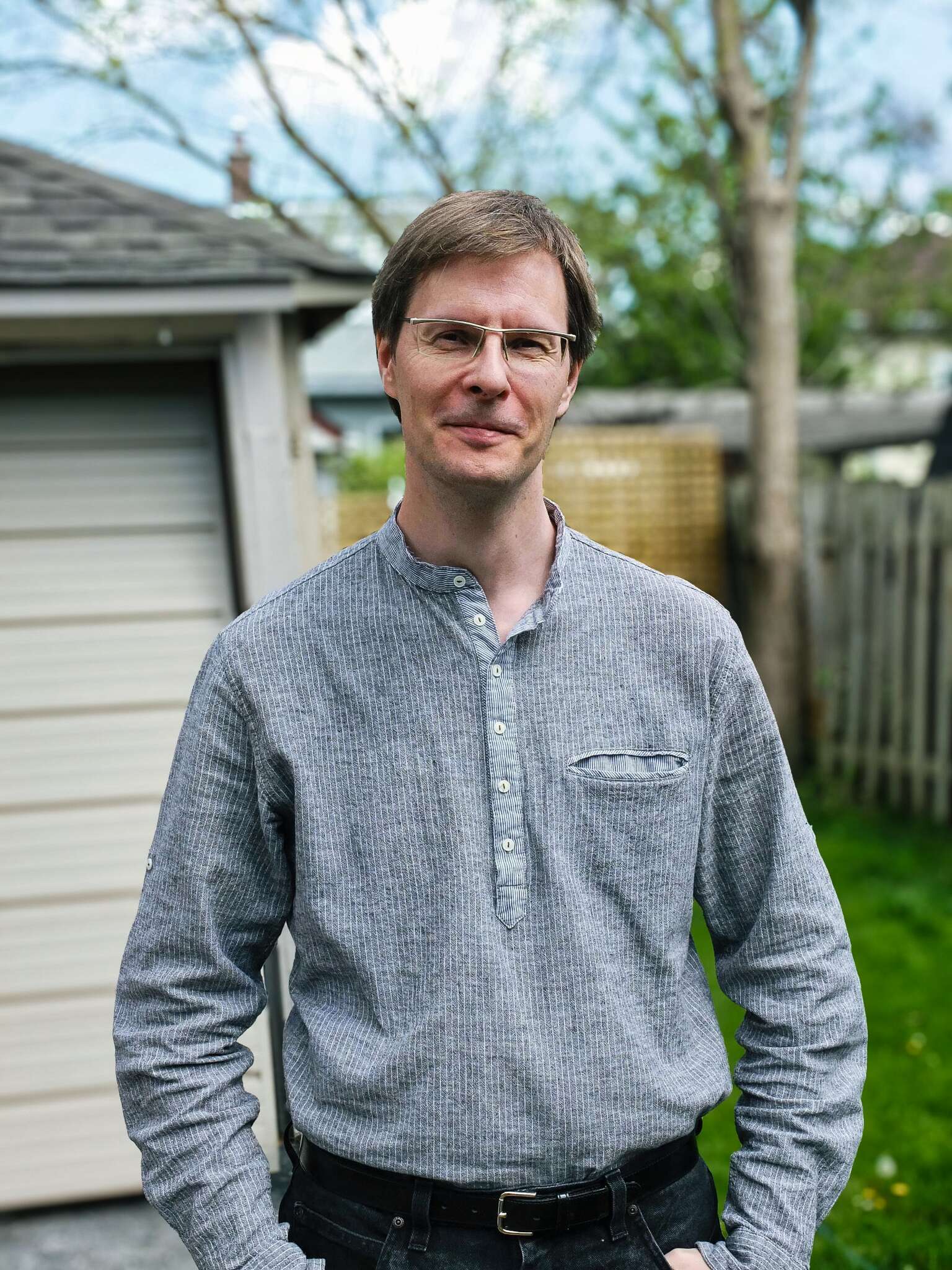Podcast: Play in new window | Download | Embed
Subscribe: RSS
Karl Schroeder is not only a great science fiction writer but also a professional futurist who has mastered both the art and science. I invited Schroeder back on my podcast for a brief discussion of foresight in the context of the on-going COVID19 global pandemic. If you have not seen our previous 2 interviews you can see those here and here.
During this 70 min interview with Karl Schroeder, we cover a variety of interesting topics such as: fundamentals of futurism and foresight; Isaac Asimov’s equations of history; change, our default future and why prediction is impossible; the new normal, or lack thereof; the impact of foresight on Alberta’s Oil Industry; strangemaking – i.e. learning to make the familiar strange; wild-card scenarios, COVID19 and the importance of story.
My favorite quote that I will take away from this conversation with Karl Schroeder is:
Recognize the power of imagination and the unlimited possibilities ahead of us. […] Strangemake the world for yourself.
As always you can listen to or download the audio file above or scroll down and watch the video interview in full. To show your support you can write a review on iTunes, make a direct donation or become a patron on Patreon.
Who is Karl Schroeder?
 Karl Schroeder is the author of ten novels that have been translated into a dozen languages. Karl has a design degree in Strategic Foresight and Innovation and divides his time between writing fiction, conducting workshops and speaking on the potential impacts of science and technology on society. He pioneered a new mode of writing that blends fiction and rigorous futures research — with his influential short novels Crisis in Zefra (2005) and Crisis in Urlia (2011), commissioned by the Canadian army as study and research tools. In 2011 Karl Schroeder attained a Masters degree in Strategic Foresight and Innovation from OCAD University in Toronto.
Karl Schroeder is the author of ten novels that have been translated into a dozen languages. Karl has a design degree in Strategic Foresight and Innovation and divides his time between writing fiction, conducting workshops and speaking on the potential impacts of science and technology on society. He pioneered a new mode of writing that blends fiction and rigorous futures research — with his influential short novels Crisis in Zefra (2005) and Crisis in Urlia (2011), commissioned by the Canadian army as study and research tools. In 2011 Karl Schroeder attained a Masters degree in Strategic Foresight and Innovation from OCAD University in Toronto.

 People often ask me about my most favorite interview I have ever done. And my usual reply is that interviews are like children, even if we have our favorites it is not wise to express that outwardly because all kinds of problems will follow. And yet, after having published nearly 250 episodes of my podcast, I can hardly remember one that has had a greater impact on me than my
People often ask me about my most favorite interview I have ever done. And my usual reply is that interviews are like children, even if we have our favorites it is not wise to express that outwardly because all kinds of problems will follow. And yet, after having published nearly 250 episodes of my podcast, I can hardly remember one that has had a greater impact on me than my  Karl thinks that AI is a bit of a red herring; complex systems and predictability; why Global Warming is not a problem to be solved but a constraint to work within; pre-apocalyptic moments as a possibility to create something new; why code is law and technology is a value;
Karl thinks that AI is a bit of a red herring; complex systems and predictability; why Global Warming is not a problem to be solved but a constraint to work within; pre-apocalyptic moments as a possibility to create something new; why code is law and technology is a value; 
